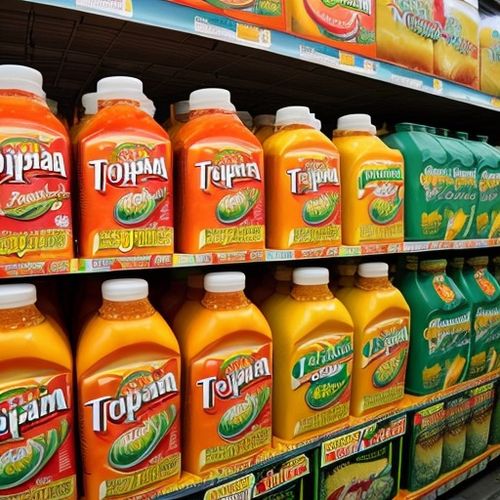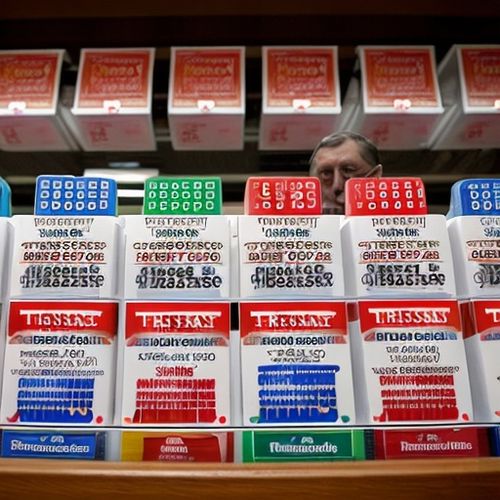In the Lone Star State, a storm is brewing over the integrity of its lottery system. Texas Governor Greg Abbott has taken a decisive step by directing the Texas Rangers to investigate two highly controversial lottery jackpots, both involving virtual ticket sales through lottery courier services.
The move comes amid growing public scrutiny and a mounting crisis of confidence in the Texas Lottery system. As lawmakers and critics clash over the role of these online ticketing firms, the very foundation of the state's lottery system is being called into question.
The first case under investigation is the $83.5 million Lotto Texas jackpot won this month. The winning ticket was purchased through Jackpocket, one of the largest lottery courier services in the United States. Jackpocket, a subsidiary of DraftKings Sportsbook, claims to have strict limits on bulk, purchasing with a $600 daily cap per consumer. However, the circumstances surrounding the win have raised eyebrows and fueled skepticism among the public.
The second case dates back to 2023, when a $95 million jackpot was won by a group of investors. This win was particularly alarming because it involved a single entity purchasing nearly 25 million lottery tickets in less than 72 hours through a courier service.
The entity reportedly bought "nearly every possible number combination," effectively doubling its money due to the high jackpot. The sheer scale of the purchase and the ease with which it was executed have raised concerns about the potential for abuse and the integrity of the system.
Lottery courier services have been operating in Texas since 2019, but they have only recently come under intense scrutiny. These services allow customers to purchase lottery tickets online, with couriers collecting the physical tickets from retail stores they often own.
While this may seem like a convenient innovation, critics argue that it creates significant regulatory gaps. Without proper oversight, it becomes nearly impossible to verify the legality of ticket buyers, and the system becomes vulnerable to money laundering and other illicit activities.
The Texas Lottery Commission, which has long been criticized for its lack of regulation over these services, has now launched an investigation into all courier services operating in the state. The commission has also imposed a limit of five lottery terminals per retailer.
However, this move comes after years of inaction, during which courier services have contributed significantly to lottery ticket sales. In the first seven months of the 2023 fiscal year alone, courier services accounted for $101 million in ticket sales, according to a Texas House report.
The lack of regulation over lottery courier services in Texas is a glaring issue. Unlike New York, New Jersey, and Arkansas, which have established regulatory frameworks for these services, Texas has allowed courier services to operate without licenses or permission from the state lottery. This regulatory vacuum has created a breeding ground for potential abuse, with critics arguing that the system is ripe for exploitation by unscrupulous actors.
The recent controversy has forced the Texas Lottery Commission to reevaluate its stance. The commission's executive director, Ryan Mindell, announced that courier services would be banned from operating in the state to ensure compliance with state law and maintain public trust.
This decision, however, has been met with mixed reactions. The Coalition of Texas Lottery Couriers called the move "abrupt, disappointing, and unnecessary," arguing that they have operated legally and responsibly since 2019. They also pointed out that the commission had previously claimed no regulatory authority over courier activities, despite repeated requests from couriers to be regulated.
The controversy has already led to significant changes within the Texas Lottery system. Texas Lottery Commissioner Clark Smith resigned amid the mounting scandal, and a class-action lawsuit was filed against the former director of the Texas Lottery Commission and several others, alleging fraud, misappropriation of funds, illegal ticket sales, and manipulation of lottery outcomes. The lawsuit is a clear indication that public trust in the system has been severely shaken.
Jackpocket, one of the largest courier services, has suspended its operations in Texas, citing the commission's new policy. The company's senior vice president, Pete Sullivan, expressed disappointment but emphasized Jackpocket's commitment to compliance and responsible gaming. Jackpocket has driven over $550 million in lottery ticket sales in Texas since 2019, and Sullivan hopes for clearer regulations that would allow courier services to continue operating.
Another courier service, Lotto.com, has also expressed disappointment with the commission's decision and is "evaluating its options." The future of lottery services courier in Texas remains uncertain, with some calling for clearer regulations and others advocating for a complete ban.
The controversy has also sparked strong reactions from Texas lawmakers. Republican Lt. Gov. Dan Patrick has been particularly vocal, slamming the Texas Lottery Commission's announcement as "garbage" and accusing the commission of having oversight authority all along. Patrick has called for the Texas Rangers to expand their investigation beyond the two specific incidents to include any and all matters related to the commission's actions or failures to act.
Patrick's visit to the courier-owned Austin retail store that sold the $83.5 million winning ticket further highlighted the public's skepticism. In a video posted to social media, Patrick questioned a store worker about the business's operations, underscoring the need for transparency and accountability.
The public's confidence in the Texas Lottery system is at an all-time low. Texans, like citizens in any state, expect their lottery system to be conducted with integrity and in accordance with the law. The recent revelations about the role of lottery couriers and the lack of regulatory oversight have shattered this trust. As Governor Abbott emphasized in his news release, "Texans must be able to trust in our state's lottery system."
The Texas lottery controversy is a complex and multifaceted issue that touches on questions of integrity, regulation, and public trust. While lottery courier offer services convenience and have contributed significantly to ticket sales, their operation in a regulatory vacuum has created significant risks. The recent actions by Governor Abbott and the Texas Lottery Commission are steps in the right direction, but more needs to be done to restore public confidence.
Clear and comprehensive regulations are essential to ensure that lottery couriers operate within the bounds of the law. Transparency and accountability must be prioritized to prevent abuse and protect the integrity of the system.
As Texas navigates this crisis, it must balance the need for innovation with the imperative to safeguard the public's trust. Only then can the Texas Lottery system emerge stronger and more resilient, ready to serve the people of the Lone Star State with integrity and fairness.

By Natalie Campbell/Mar 3, 2025

By Benjamin Evans/Mar 3, 2025

By Amanda Phillips/Mar 3, 2025

By John Smith/Mar 3, 2025

By Samuel Cooper/Mar 3, 2025

By Olivia Reed/Mar 3, 2025

By Michael Brown/Mar 3, 2025

By Jessica Lee/Feb 27, 2025

By Rebecca Stewart/Feb 27, 2025

By Ryan Martin/Feb 27, 2025

By Rebecca Stewart/Feb 27, 2025

By Sophia Lewis/Feb 27, 2025

By Amanda Phillips/Feb 27, 2025

By Christopher Harris/Feb 27, 2025

By Amanda Phillips/Feb 27, 2025